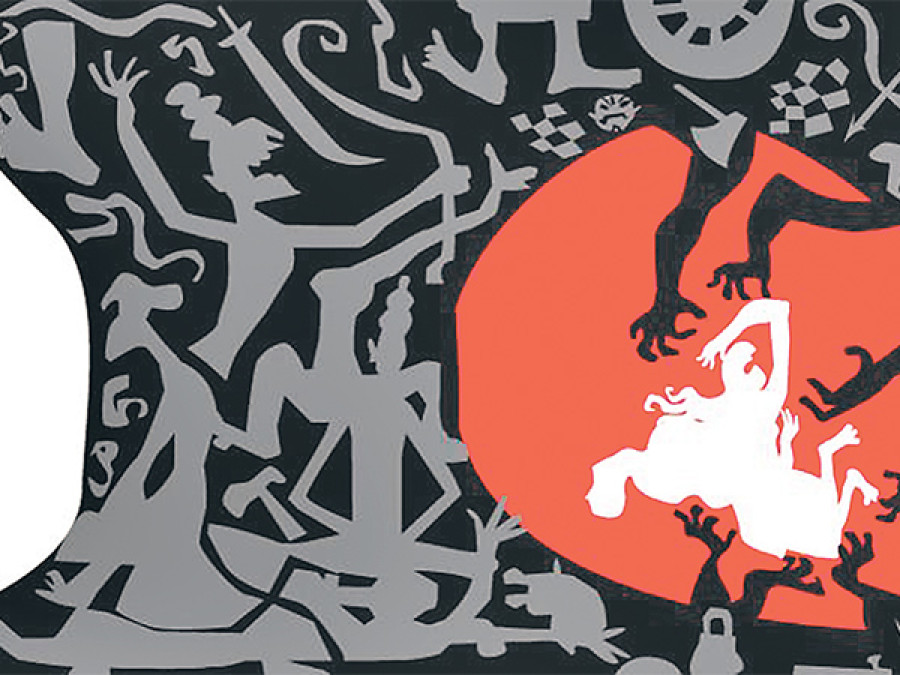Opinion
Rage against rape
What should the punishment for our ‘soul snatchers’ and ‘life spoilers’ be?
Chandra Bhadra
Just too many
Of course, there have been many rapes in different parts of the country after the Bara rape, and the streets of various cities and towns, seminar halls, and school halls in the Capital City, regional headquarters, and district headquarters are still echoing with deliberations on the ‘whats and hows’ of rape and other perpetrations of violence against women. Just within the week of the Bara verdict (March 17), The Kathmandu Post reported of a 11-year-old girl raped by an elderly man of 76 years in Arghakhanchi (March16); a six-year-old raped by her own relative in Kapilvastu (March 16); a 30-year-old woman raped by a school teacher in Pyuthan (March 18); of three people receiving 10 years’ imprisonment each for gang-raping a 26-year-old woman in Ramechap (March 19); a six-year-old girl raped in Kapilvastu (March 20); a four-year-old raped in Khotang (March 22) ; a seven-year-old raped in Dhading (March 23); a 13-year-old girl raped by her father in Kapilvastu (March 24); and a schoolteacher raping an eight-year-old student in Bara (March 24). The rapists ranged from 14-year-old boys to an old man of 76 years. It also consisted of a gang, teachers, relatives, and a victim’s own father.
Alas.When are these atrocities of invasion upon women’s bodies and the prevailing misogyny going to end? And how are we to ensure the end of these monstrous felonies so that we women (of all ages) cease to live our lives as victims and potential victims?
Rapist’s right to life?
There is strong logic behind Bara’s demands for no less than a death penalty for rapists of minors. Human rights defenders may consider this proposition inhuman, but they have to also know ‘what rape does to a woman’s body and her spirit/soul’ and look into the matter with gender sensitivity. Rape is sheer disrespect for women’s bodies. In the name of preserving the family’s/society’s honour, we Nepali women, since our very childhood, are forbidden to express our feelings on sexuality. This prohibition goes to the extent of expressing how we as women feel about rape and the risk of potential rape. Till now, we have been too polite to say to the world that the thought of being raped ‘shudders our vagina and breasts’ and ‘deranges our brain’ or ‘that rape is an invasion upon women’s body and soul; it kills our souls and spoils our lives’. So, when a rapist kills a woman’s soul and spoils a woman’s life, what credible argument can there be to defend his right to life?
Chapter 2 Para 26 of the of the proposed Criminal Code Bill, under discussion in the Legislative House of the current Constituent Assembly, provisions ‘killing of the perpetrator’ in cases of i) legitimate belief in the intent of rape, or ii) during the act of rape, or iii) immediately after the act of rape. But the question is, how can minors of only four, six, or even 13 years of age perceive the ‘intent to rape’? Or for that matter, how can even an adult woman dare to kill the rapist when she is physically and mentally incapacitated from the very act of rape? If the state provisions ‘death to the rapist’ with this clause, then there has to be legitimacy in the state’s intention and empathy towards victims of rape. In this context, should not the state act on behalf of these citizens and fulfill its guardianship by taking the rapist’s life, as provisioned in this clause? Otherwise why offer a legal instrument if the intent is not to use it?
Chapter 5 Para 40 of the same Bill provisions ‘life imprisonment’ for rape and murder. With this very provision of the sentence for the rapist-plus-murderer, the Bara rapist got 35 years imprisonment. What next? The rapist is going to spend the rest of his life leisurely eating dal-bhat in the prison cell provisioned by Nepali taxpayer money. I suggest that state and non-state national and international agencies working to end violence against women conduct research and document the annual cost of sustaining rapists in various prisons of
the country. Should not the money be better used elsewhere, like paying fees for poor students who were barred from appearing in SLC examination due to a lack of Rs 500 for the application form? There are numerous such needs where that money spent has much superior social and economic value.
Politics of the body
Advocacy for more representation of women in the Constituent Assembly (‘Critical presence,’ October 1, 2013) is for biological and social representation of women’s concerns in the impending constitution. This advocacy has now been concretised in Ranju Jha, Chair of the Parliamentary Committee on Women, Children, Elderly Citizens, and Social Welfare, instructing the government to formulate a bill to adopt chemical castration of the convicted rapist. This instruction has alreadygenerated shudders to hegemonic masculinity and arguments against it are floating around in the guise of human rights. Appreciating Ranju Jha and her Committee’s courage and clout, I call upon all women and real men to back this proposal to do away with the criminal menace over women’s body and soul, and to insist on the highly-publicised execution of the chemical castration and ‘naming and shaming’ the rapist so that the message reaches all potential rapists.
Bhadra is a professor of Gender Studies at Tribhuvan University, Nepal




 22°C Kathmandu
22°C Kathmandu










